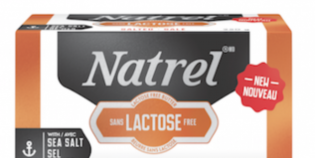Consumers are weary about handing over their personal data, but they’re willing to share if they get rewarded, according to a new survey by Aimia, in partnership with Columbia Business School.
More than 8,000 consumers in five countries participated in the study including more than 2,000 Canadians.
Globally, 85% of consumers want to know more information about the data companies collect and 86% want to exercise greater control over the data companies have about them. In addition, 80% will only give data to a limited number of companies they trust, and 75% are worried that sharing data makes them targets to marketing campaigns.
However, the majority of respondents will share data for certain benefits: 80% said they would share data for rewards from a company, 79% would share data for cash back, and 77% would share data for coupons. The majority also said they would share personal data for location-based discounts (69%), coalition rewards (66%) and a special event invite (63%).
“We’re still in a phase in which consumers are concerned about how their data is being handled by companies and how they’re sharing that data,” said Matthew Quint,director, Center on Global Brand Leadership at Columbia Business School.
“But at the same time, they recognize that conducting business with companies these days requires sharing data in many cases. Or if it doesn’t require it, there is added value to be had by sharing data.”
Not surprisingly, 75% of respondents are more willing to share personal data with brands they trust. But, for those who said they weren’t likely to share their data, trust is a factor in getting them to share, said Aaron Dauphinee, general manager at Aimia Institute, the thought leadership centre for Aimia. “That’s overage for brand trust: you can motivate consumers to share information that they wouldn’t likely share with other brands they don’t trust,” he said.
Researchers defined four consumer mindsets when it comes to sharing data. Most consumers (43%) are “defenders,” meaning they take action to protect their data and are not happy to share. This is followed by “savvy and in control” consumers (24%) who take defensive actions, but are willing to share data for relevant offers and added value; “resigned” (23%) consumers who aren’t happy to share but don’t take defensive action; and “happy go lucky” (10%) people who are low defense and happy to share.
There’s a much larger percentage of millennials and Gen X members in the “savvy and in control” mindset, which should offer companies hope for building stronger consumer relationships over time, according to the researchers. “Due to the new world that Gen X and millennials are growing up in, many of their attitudes about data sharing and where there’s value to come from data is likely to continue over time… rather than their attitudes turning into ‘defender’ attitudes as they get older,” said Quint.
Overall, younger generations are more comfortable with how companies handle their data. Among millennials, 51% are at least somewhat comfortable with how companies handle their data. That’s followed by 44% of Gen X, 35% of baby boomers and 35% of the silent generation.
Of all personal information, consumers are the most sensitive about sharing their address with companies (58%), followed by mobile phone number (46%), name (45%) and date of birth (42%).
Among the five countries in the survey, Canada ranked the lowest in terms of people’s willingness to share personal data (33%). India had the highest percentage of consumers willing to share personal data (48%), followed by the U.S. (41%), the U.K. (38%) and France (36%).
Canadians are most comfortable with how financial services companies handle their personal data (59%), followed by telecom (39%), retail (30%), airlines (35%), web services such as Facebook and Google (21%) and ecommerce (21%).










